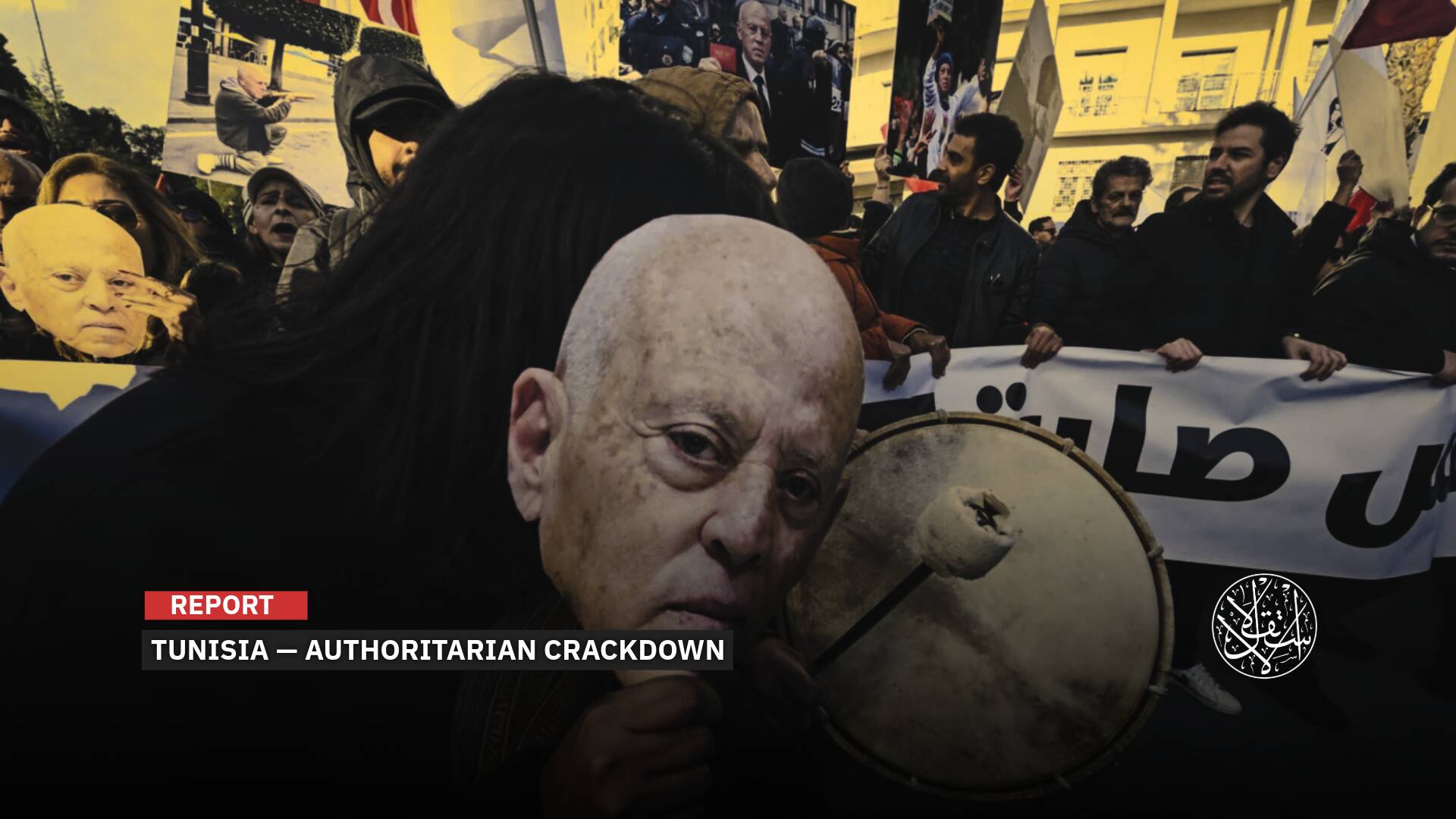For the First Time: A US Mercenary Group in Ukraine is Having a Public Conflict

The Intercept newspaper published an article by Peter Maass where he mentioned that a month after Russia invaded Ukraine in February, a private US company with the unusual name of the Mozart Group was set up to train Ukrainian soldiers who were rushing to the front lines without readiness.
Mozart’s group, initially made up of a handful of retired Marines, attracted wide media coverage and was portrayed as a noble effort by US volunteers to pass on their combat skills to beleaguered Ukrainians.
Wagner Counterpart
Mozart’s name was a striking response to the Wagner Group, a notorious Russian paramilitary firm accused of war crimes in Ukraine and elsewhere.
US veterans have described Mozart as a donor-funded initiative to provide humanitarian assistance alongside military training, whose members are not involved in combat and say they don’t even carry weapons.
By August, Mozart had deployed three teams of former soldiers, two military training teams and one to get civilians off the front line, each costing up to $100,000 a month, according to a fundraising email from Navy Officer Andy Milburn, the group’s former leader.
Andrew Bain, a Kyiv businessman and former Marine, filed a lawsuit in Wyoming, where Mozart registered an LLC, accusing Milburn of financial fraud, sexual misconduct, burglary, attempted bribery, ignoring US arms transfer regulations, and threatening a retired US general.
The lawsuit asks the court to remove Milburn from the company and orders him to pay more than $50,000 in damages.
The past few decades have seen a plethora of private military companies that are not properly supervised and have been accused of engaging in widespread abuses.
The most notorious after 9/11 was Blackwater, led by former US Navy SEAL Erik Prince, whose mercenaries (highly paid) were mostly retired US military personnel, active in Iraq, and implicated in war crimes there.
Although Prince was not personally charged, Wagner’s forces were accused of atrocities in every war zone in which they were engaged.
Mozart’s group puts itself in a different mold, claiming that its members are unarmed and helping civilians and soldiers.
Milburn reacted angrily when a US magazine described him as a foreign fighter. However, the company has found a unique way to become the subject of controversy.

Counter-Accusations
A day after the lawsuit was filed, Milburn responded with a barrage of counter-accusations in social media posts, calling Bain a disgruntled former chief financial officer of the company and saying Bain was accused of financial and sexual misconduct.
He also said Bain was investing a lot of money in Russia, a serious accusation in the current wartime.
In a surprise accusation, Milburn alleged that Bain tried to sell Mozart to the Taliban. Milburn subsequently deleted those posts, although he told The Intercept that he still stood by what he said.
Milburn wrote on Twitter: “I apologize for allowing this individual to be affiliated with the Mozart Group. We are reevaluating our vetting process and will not allow this to happen again.”
The writer emphasizes that the full story of what is happening inside Mozart is not yet known.
Although it’s normal for a startup to fall out of a dispute, it doesn’t often happen in an active war zone. Interesting information suggests that there are efforts to profit from Mozart’s high-profile business in Ukraine by transforming it into a private military company with global aspirations.
Milburn has consistently maintained that Mozart is donations-based and dedicated solely to saving Ukraine, and the lawsuit accuses him of seeking military contracts in Armenia.
The accusation does not appear to be unfounded: A recent article in Intelligence Online reported that Mozart now plans to become a traditional private military contractor, seeking profit and expansion into other war-torn regions.
Mozart’s chief operating officer, former naval officer Martin Wetterauer, confirmed it was looking for new agents in other locations in the world.
Whatever its outcome, the lawsuit calls into question the stability and credibility of what the New York Times described a few months ago as one of Ukraine’s largest private military companies.
It seems certain to lend strength to Russia’s sharp criticism not only of Mozart but also of overall US efforts to help Ukraine, as Mozart is one of America’s most visible citizen-led initiatives.
Part one of the story of a corrupt expat who couldn't cut it as a Marine Corps officer, got out and moved to Ukraine in 1992. Every former partner, including @Olya_Bosak, has fled once they got to know him. Now he's seeking to cozy up with the Taliban. https://t.co/mYRWfz90ht pic.twitter.com/CCDR57vG8z
— Jeffrey Carr (@jeffreycarr) January 18, 2023
From Iraq to Ukraine
Since its inception, Mozart has been intricately associated with Milburn, who describes himself as the founder of the group.
Milburn, a British-born, retired from the Marine Corps as a colonel in 2019 after more than three decades of service that included deployments to Iraq, Somalia, and Afghanistan.
Most recently, he was deputy commander of the US Special Operations Command, which plans special actions in the Middle East and Central Asia.
He has written a memoir about his career, entitled When the Tempest Gathers, and contributed military-themed articles to several prominent publications.
He traveled to Kyiv as a freelance journalist weeks after the Russian invasion in February, where he presented five stories for Task & Purpose, a military website.
His latest story, published on April 2, was about a former Marine accused of rape in Ukraine, but was later withdrawn and now carries a note from an editor saying it is “undergoing editorial review for standards and practices and will be unavailable until the review is complete.”
A day later, he made his first PayPal fundraising attempt to raise $20,000, and within hours, he wrote on Twitter, he received half the amount from a military contractor.
Two weeks later, Milburn explained in an article for Newsweek that his work at Tusk & Purpose seemed trivial at the outbreak of war, so he decided to organize a military training after people he knew from previous visits asked him to help the Ukrainian military.
With US military personnel largely out of the country and US diplomats leaving in the early days of the Russian invasion, Milburn attracted a great deal of media attention and was one of the few Americans on the ground with combat experience working with Ukrainians, willing to speak with journalists, and frequently interviewed on satellite channels.
While major newspapers in the United States, the United Kingdom, and France published articles about him, a report about his character in the New York Times carried the headline “An American in Ukraine Finds the War He’s Been Searching For.” But none of these stories referred to the accusations Bain has now leveled at Milburn.
‘Crazy American’
Bain announced his 12-page lawsuit in a LinkedIn post last week challenging Milburn’s portrayal of himself as the founder of Mozart.
He wrote: “At the outset of the war, having lived in Kyiv near on 30 years and recognizing Ukraine’s dire need for basic military training, I contacted a retired US Marine general friend asking if he knew anyone who could come develop training. He put me in contact with Andy Milburn, who came to Ukraine a few weeks later.”
According to Bain, “I registered, named and arranged financing to launch the Mozart Group with a goal of providing training and support as needed for the war.”
Bain’s publication states that he owns 51% of the group’s shares, while Milburn owns 49%, and in response to a request from The Intercept for documentation, Bain submitted three 35-page pages of Mozart’s operating agreement, one of which presents a blueprint that attributes 51% of the company to Bain and 49% to Milburn.
While Bain has not previously declared ownership of Mozart, there is a public record confirming the two men’s cooperation.
On April 10, they launched a YouTube channel called “Two Marines In Kyiv,” which now hosts seven videos, most of which feature discussions between them. The channel’s About page describes Milburn as CEO of the Mozart Group, and Bain as head of the Ukrainian Freedom Fund, which according to its website, is an NGO that has raised more than $3 million since February for military and humanitarian aid.
Bain’s most serious claim revolves around Milburn’s handling of donated funds, which the lawsuit describes as efforts to “facilitate the transfer of funds away from the Mozart Group,” and alleges that Milburn was “insisting on the payment of personal damages exceeding $35,000 per month from company accounts, which were received in personal or other accounts controlled by him.”
At the very least, some of Milburn’s personal fundraisers did not hide from the donors: his social media requests included clear links to his Venmo and PayPal accounts, which he said were necessary because Mozart’s donation platform was not operating at the time, possibly due to the Russian hack.
But until Bain’s lawsuit, he was not accused of misusing funds deposited in those accounts or other accounts he controlled.










